Is buying a house cheaper than renting?
Renters face rising costs and a shortage of properties on the market
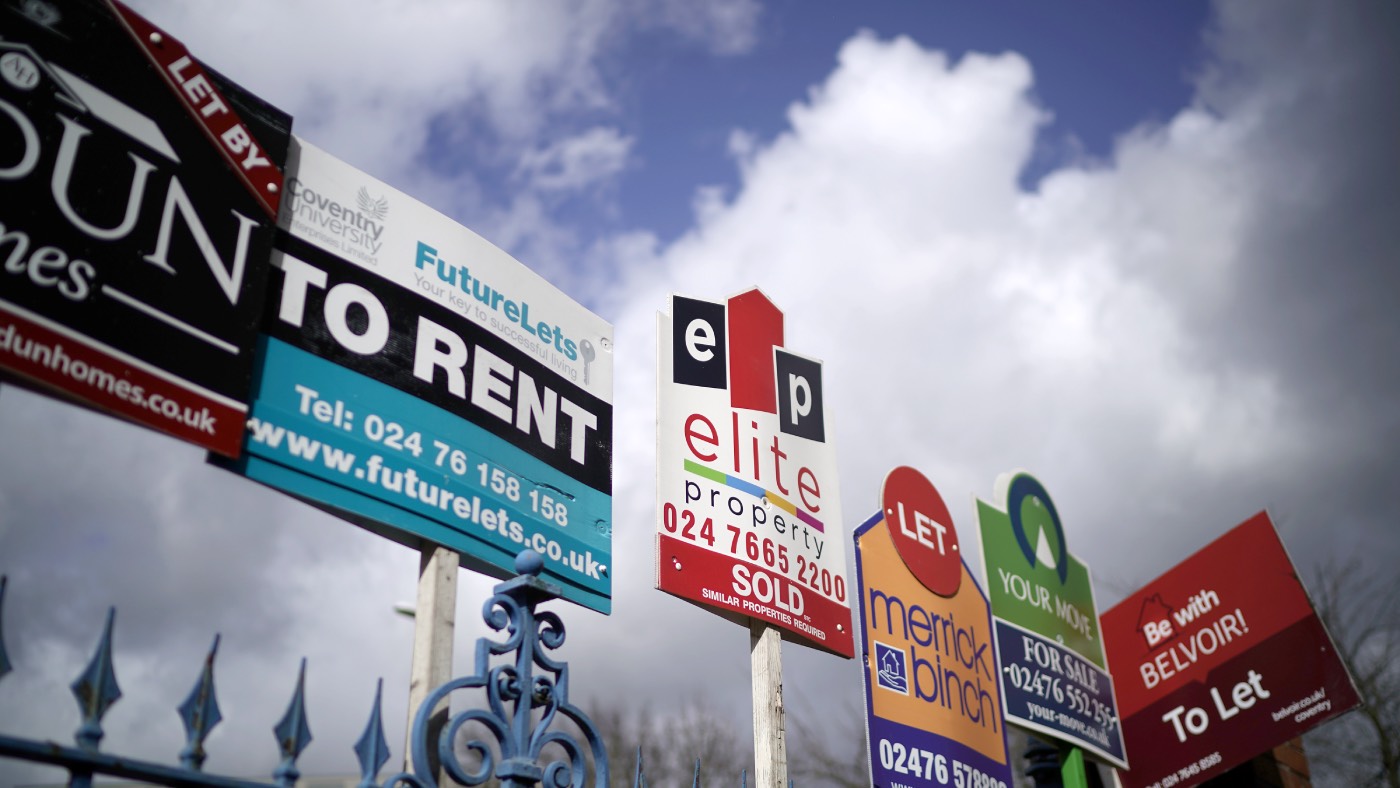
A free daily email with the biggest news stories of the day – and the best features from TheWeek.com
You are now subscribed
Your newsletter sign-up was successful
Despite the latest spike in interest rates, owning a home is still cheaper than renting.
Analysis by Halifax found that, for a first-time buyer with a mortgage, the monthly cost of owning a three-bedroom home is £42 less than the rental cost of an equivalent property.
Renting such a property costs on average £1,013 per month, compared to a mortgage on it, which costs £971. The difference equates to almost £500 a year in savings.
The Week
Escape your echo chamber. Get the facts behind the news, plus analysis from multiple perspectives.

Sign up for The Week's Free Newsletters
From our morning news briefing to a weekly Good News Newsletter, get the best of The Week delivered directly to your inbox.
From our morning news briefing to a weekly Good News Newsletter, get the best of The Week delivered directly to your inbox.
Barriers to buying
“A predicted fall in house prices this year will be welcome news for those looking to buy their first home,” said Kim Kinnaird, mortgages director at Halifax. But “it doesn’t change the fact that getting on the property ladder remains expensive – a problem that is compounded when rents are high”.
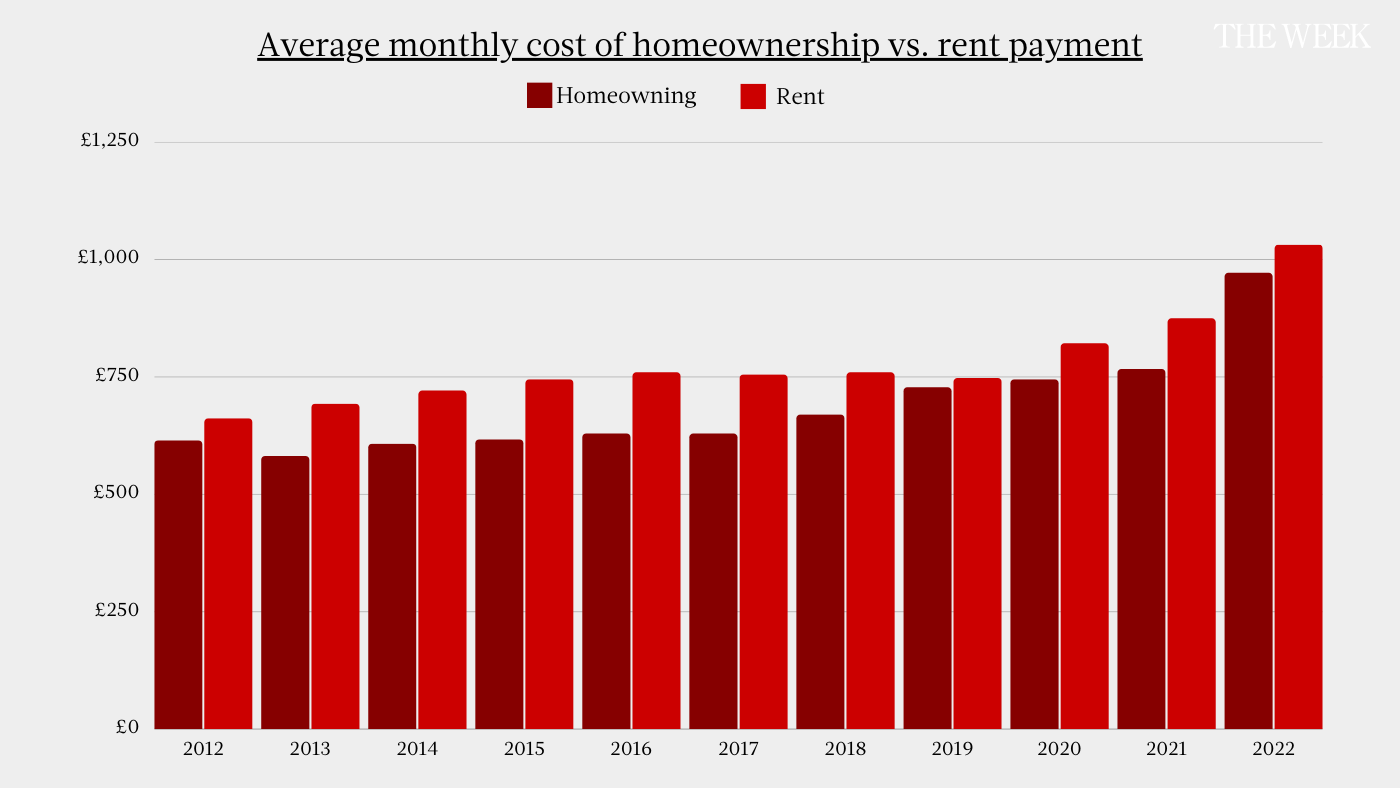
According to research by Hamptons estate agents, it can take a first-time buyer saving up for a 15% deposit as long as ten years to reach their goal – and an additional five years if they are looking to buy in London.
Rents have increased in recent months, a trend that is forecast to continue due to “growing demand from tenants and a shortage of rental properties”, said The Guardian. Rising mortgage costs and tax changes are encouraging a lot of “smaller landlords” to sell.
Some first-time buyers have criticised Chancellor Jeremy Hunt for failing to introduce any major changes to housing policies in his Budget, with “the dream of owning a home” now “falling even further out of reach”, said the i news site.
A free daily email with the biggest news stories of the day – and the best features from TheWeek.com
Regional rents
According to Halifax’s analysis, the East of England is now the only region or nation in the UK where it is more costly to own a property than to rent. Homeowners here pay on average 8% more a month – around £90 – compared to renters in an equivalent property.
The opposite is true in London, where homeownership saves an average of £2,950 annually compared to renting. The biggest percentage gap between owners and renters is in Scotland, with homeowners saving an average of 21%.
However, experts point out that monthly payments are only part of the cost of home ownership. There are expenses such as buildings insurance, home repairs and maintenance costs such as boiler servicing to take into consideration, says Which?.
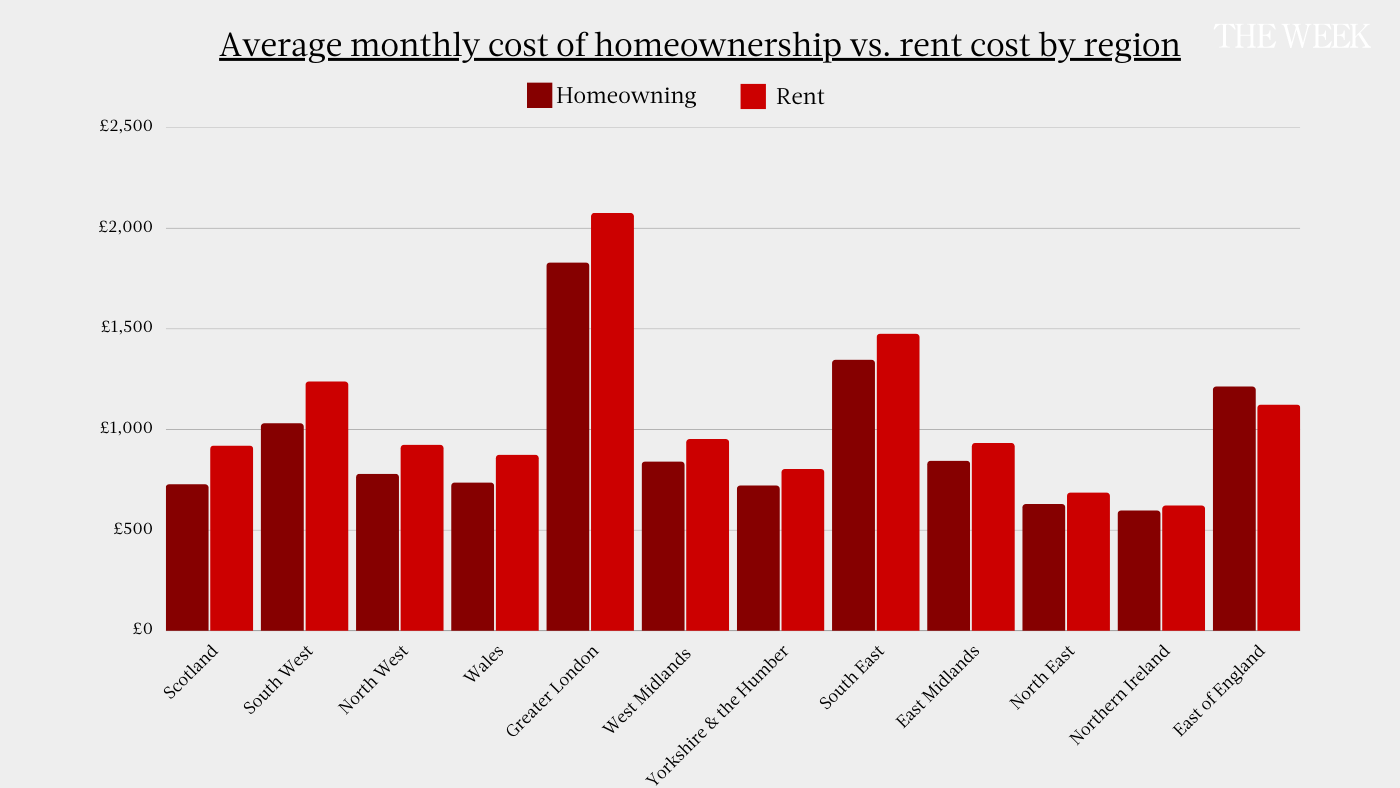
‘Uber-rich renters’
“The vast majority” of renters “cannot afford to buy”, said The Times. That includes “doctors, civil servants and the super-rich – individuals who would certainly have owned their homes 40 years ago”.
Some households choose to rent due to “fierce competition for entry to highly-rated schools” in areas with “unaffordable” property prices. Others “love the area” where they live but continue to rent because “runaway” house prices prevent them from buying.
But there is also a “rapidly growing cohort of very rich renters” such as “footballers, celebrities and business titans”, said The Times, who “commonly pay £40,000 a week for some of the most luxurious mansions” in the UK.
Very wealthy people often have “transient lifestyles” and may not want to invest in a permanent UK base. But “by far” the “most important” reason that this type of individual rents is the amount of tax they would pay if they were to buy a property equivalent to what they rent, which has “risen exponentially” with increases in stamp duty.
-
 Health insurance: Premiums soar as ACA subsidies end
Health insurance: Premiums soar as ACA subsidies endFeature 1.4 million people have dropped coverage
-
 Anthropic: AI triggers the ‘SaaSpocalypse’
Anthropic: AI triggers the ‘SaaSpocalypse’Feature A grim reaper for software services?
-
 NIH director Bhattacharya tapped as acting CDC head
NIH director Bhattacharya tapped as acting CDC headSpeed Read Jay Bhattacharya, a critic of the CDC’s Covid-19 response, will now lead the Centers for Disease Control and Prevention
-
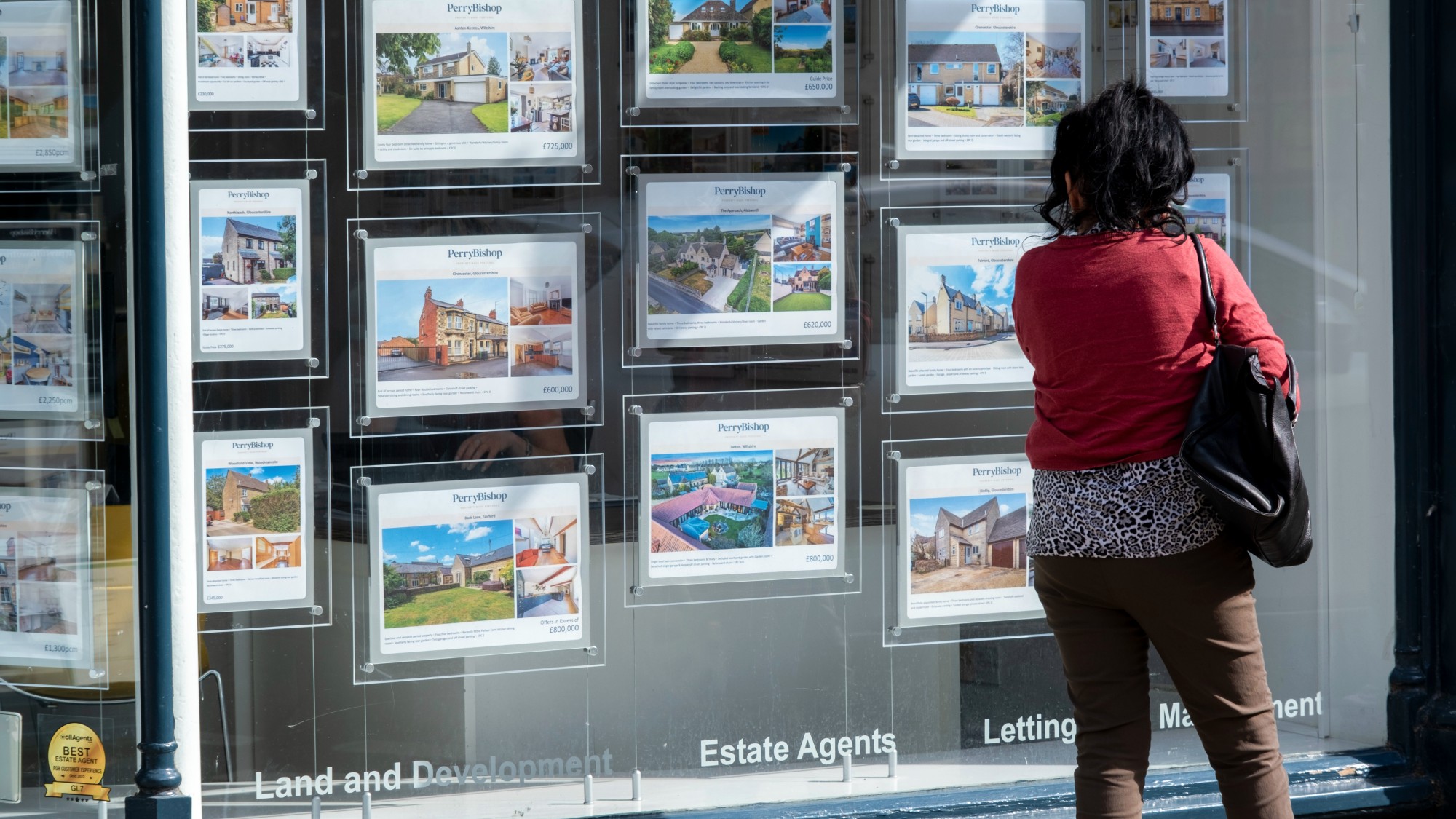 The end of leasehold flats
The end of leasehold flatsThe Explainer Government reforms will give homeowners greater control under a move to the commonhold system
-
 Why baby boomers and retirees are ditching Florida for Appalachia
Why baby boomers and retirees are ditching Florida for AppalachiaThe Explainer The shift is causing a population spike in many rural Appalachian communities
-
 The pros and cons of new-builds
The pros and cons of new-buildsPros and Cons More options for first-time buyers and lower bills are offset by ‘new-build premium’ and the chance of delays
-
 How the Grenfell tragedy changed the UK
How the Grenfell tragedy changed the UKfeature Six years on since the government vowed to ‘learn lessons’ has sufficient progress been made?
-
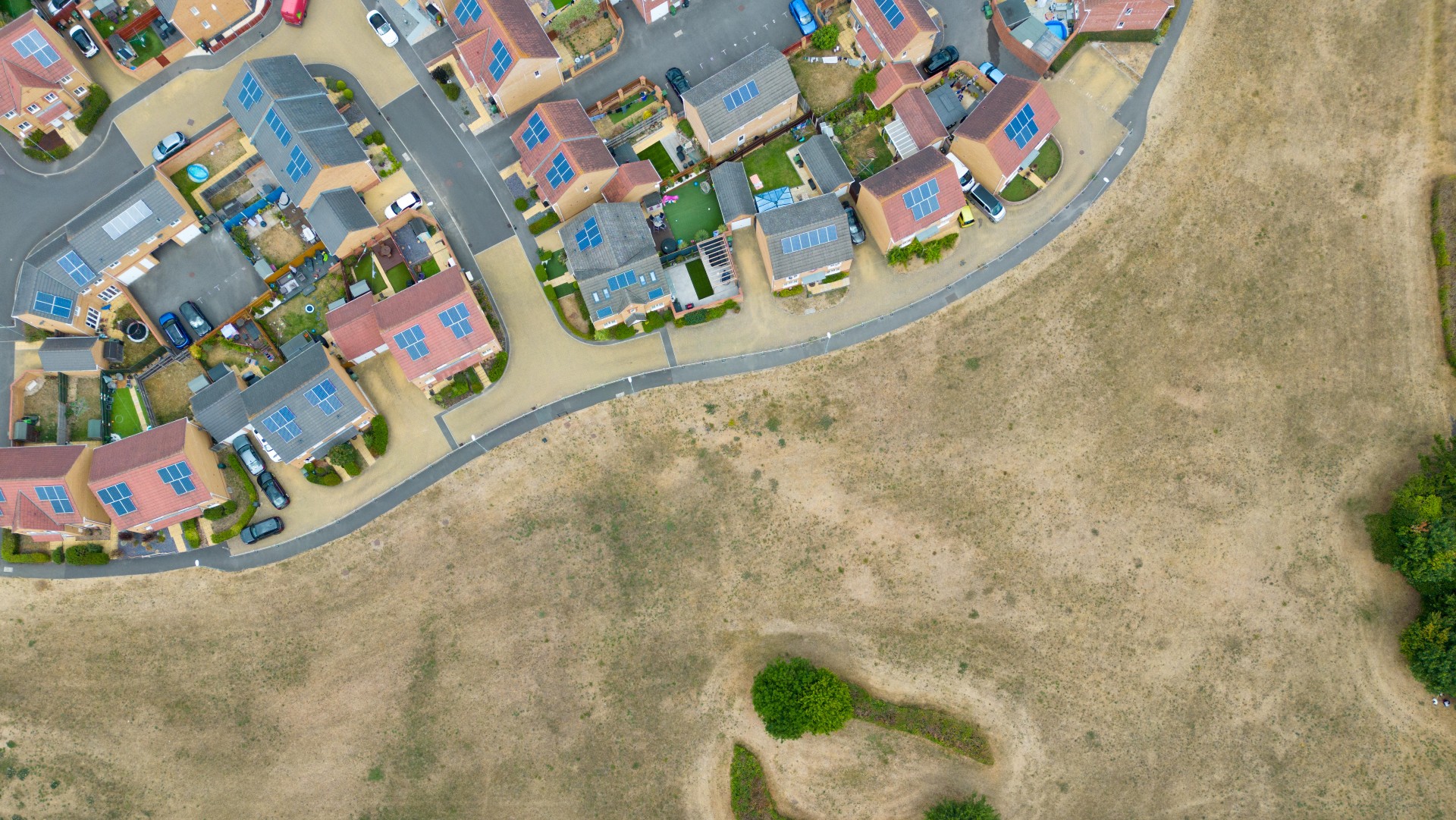 Pros and cons of building on the green belt
Pros and cons of building on the green beltPros and Cons More housing and lower house prices must be weighed against urban sprawl and conservation concerns
-
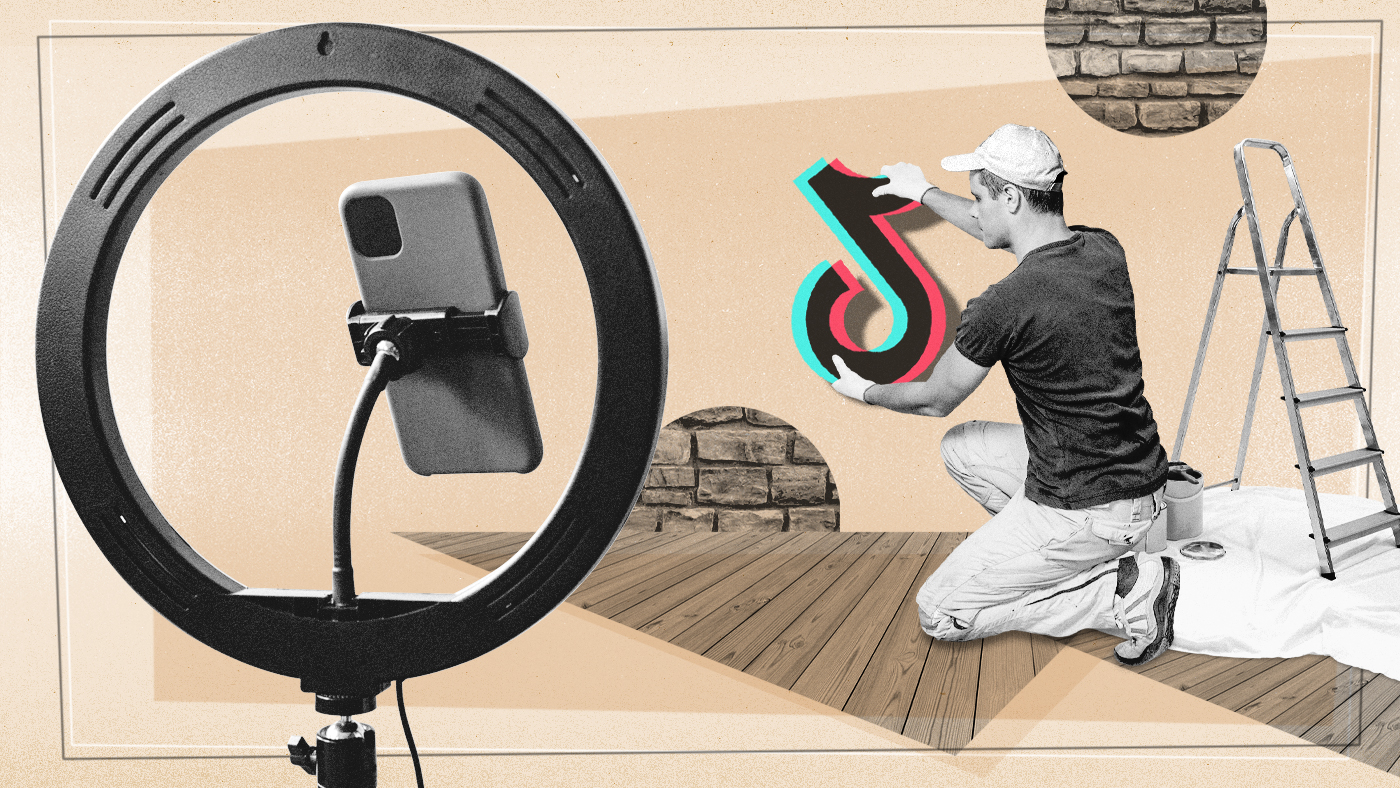 #PropertyTok: the surprising rise of the landlord influencer
#PropertyTok: the surprising rise of the landlord influencerTalking Point New subgenre of social media content promises financial freedom but at what cost?
-
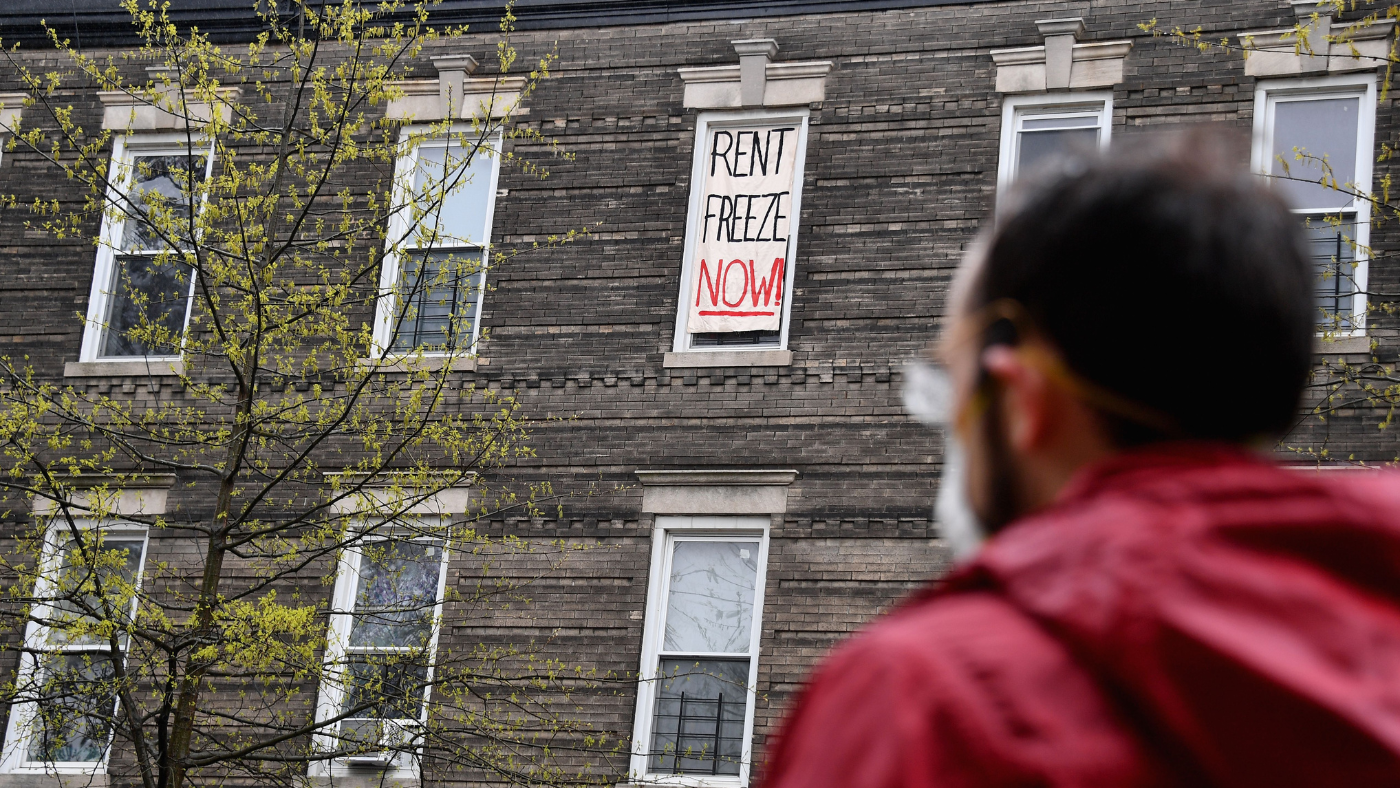 The pros and cons of rent freezes
The pros and cons of rent freezesPros and Cons Proponents say rent controls provide stability for tenants, but critics claim they won’t fix the housing crisis
-
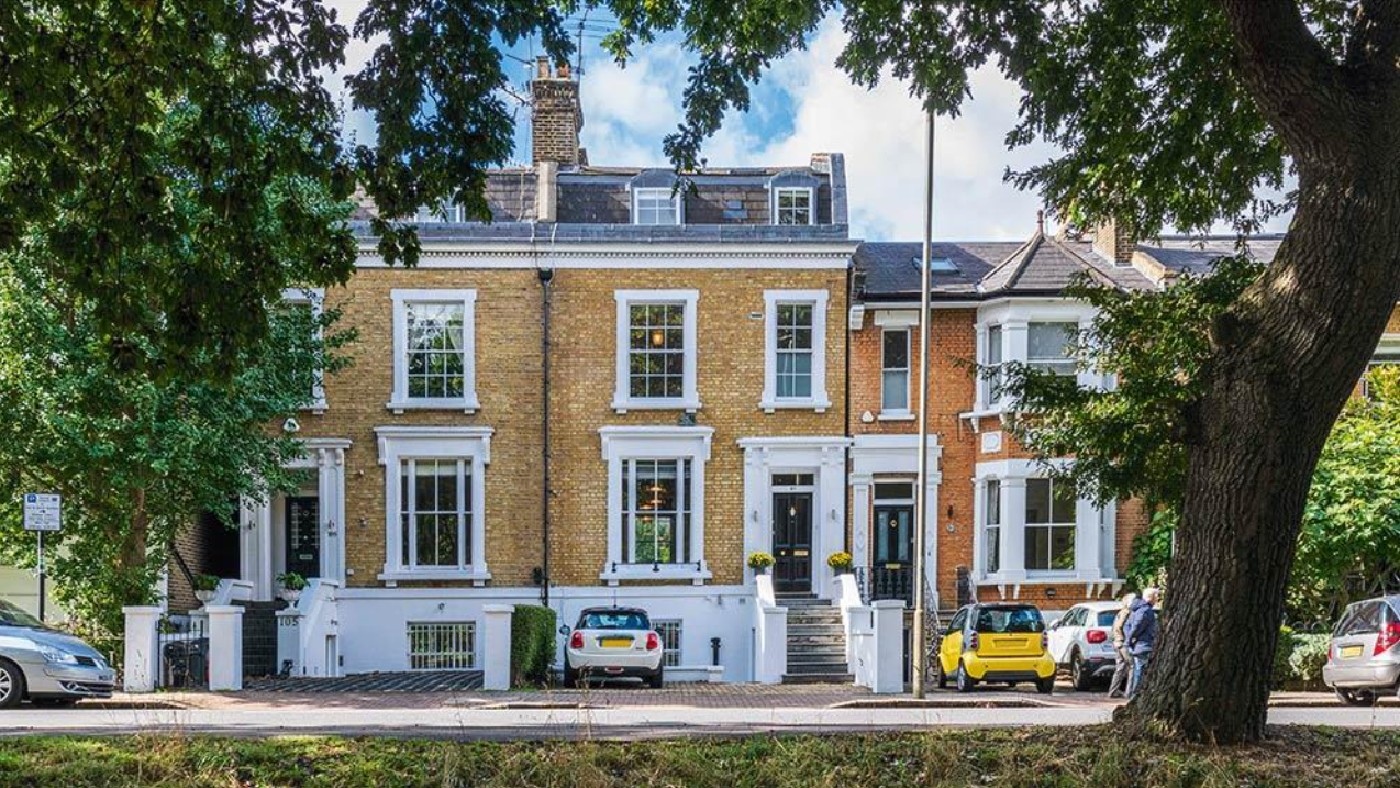 Rental prices in London: the cheapest and most expensive boroughs
Rental prices in London: the cheapest and most expensive boroughsfeature Costs are soaring as people return to the capital after the Covid pandemic